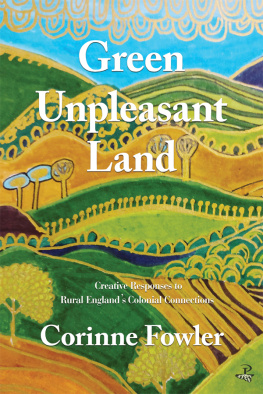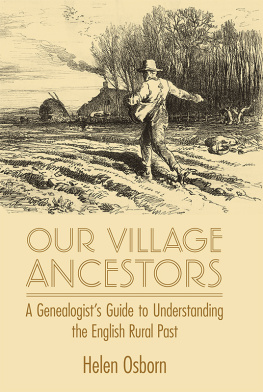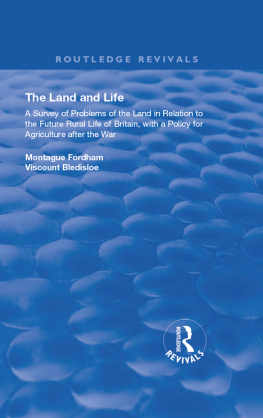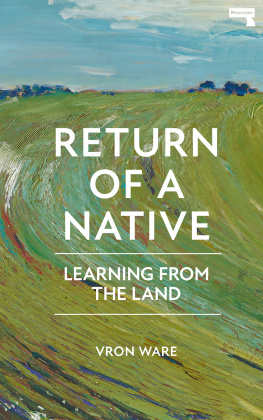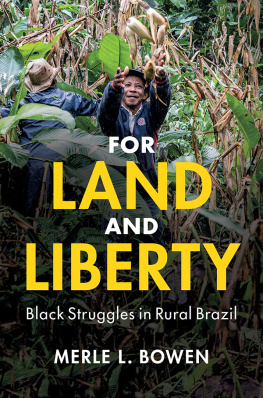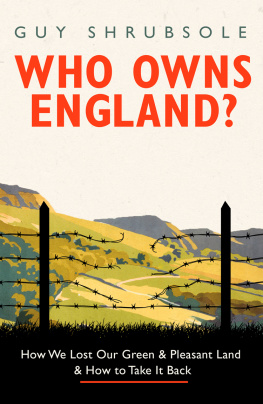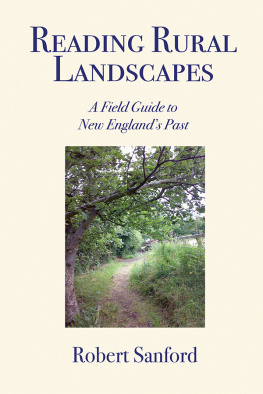ACKNOWLEDGEMENTS
Books are always a collective effort. First of all I want to thank Jeremy Poynting, the founder and managing editor of Peepal Tree Press. Thanks to Jeremys efforts, I have been able to incorporate considerably more historical and literary material than I would otherwise have done. He also urged me to think more deeply about the importance of class to the analysis. In particular, his editorial interventions allowed me to connect, and evidence, rural poverty at home with colonial activity abroad. The existence of Peepal Tree clearly demonstrates the importance of quality independent presses. I also want to thank Jacob Ross, the associate editor, for his judicious and forensic editorial input to the creative material and to Hannah Bannister for keeping everything on track no matter what.
This book represents one of many efforts to provide a sound basis of evidence as a resource to inform public discussions about British colonial history. Once again, this is a collective effort. I wish to thank a list of exceptional people for the insights that they have contributed through their work and for the Colonial Countryside project: Robert Beckford, Caroline Bressey, James Dawkins, Misha Ewen, Radikha Holstrom, Rozina Misrah, Sumita Mukherjee, Shawn Sobers, Florian Stadtler, Anthony Tibbles and Kristy Warren. My close colleagues have given sound advice and offered timely support: Rabah Aissaoui, Gowan Dawson, Lucy Evans, Zalfa Feghali, Clive Fraser, Martin Halliwell, Sarah Knight, Mary Ann Lund, Suzanne MacLeod, Richard Thomas, Richard Sandell, Philip J. Shaw and Victoria Stewart. In the heritage sector itself are many talented and brave colleagues whom I admire: Dominique Bouchard, Rhian Cahill, Laura Carderera, Matthew Constantine, Alison Dalby, Emile de Brujin, Liz Green, Andrew Hann, Emma Hawthorne, Charlotte Holmes, Tom Freshwater, Indy Hunjan, Nadia Hussain, Sally-Anne Huxtable, John Orna-Ornstein, Polly Schomberg and Nino Strachey.
There is another group of people to thank who have provided moral support and applied their fine minds to this books topics, making me see things anew. They are Clare Anderson, Kavita Bhanot, Joanna de Groot, Katie Donington, Madge Dresser, Elisabeth Grass, Marian Gwyn, Sarah Longair, David Olusoga, Raj Pal and Laurence Westgaph. I particularly want to thank the amazing Miranda Kaufmann, the generous and clearsighted lead historian of Colonial Countryside. For giving me moral support and courage, I want to thank Hamida Ara, Desiree Baptiste, Jane Baron, Steve Baron, Yannick Guerry, Halgurt Habeel, Peter Kalu, Carol Leeming, Hari Matharu, Edy Motta, Henderson Mullin, Kevin Ncube, Yewande Okulele, Raj Pal, Lynne Pearce, Harry Whitehead and Binnie Sabharwal. Finally, to my long-suffering parents, Malcolm and Yvonne Fowler and my twin sister Naomi Fowler.
PREFACE
A hand shot up. My questioner looked quizzical. I pointed at him and he said, Doesnt this sort of approach undermine your position as a literary critic? Writing a book with poems and short stories in it?
I expected the question, but its taken me a while to formulate an answer. For this academic, I had crossed a line. To him, creative writing is expressive, not analytical. He felt that this book would be fatally compromised because I saw my stories and poems as integral to its commentary. I was supposed to write about writers, not with them. His tone was confident, his question a statement. I was reminded of the writer, Graham Mort, who once remarked that university literature specialists view creative writing as an interesting cultural secretion. Having betrayed my own propensity to secrete poems and stories, my impartiality was now in question.
I should have replied that writing both critically and creatively has respectable antecedents. The Welsh novelist and critic Raymond Williams observed that research topics are invariably linked to personal stories. See the topic and you see the person. Williams did not consider this a bad thing. Most academics accept that impartiality is an illusion. When personal motivations animate scholarship, it is a bad idea for these to remain unconscious, unexamined and undeclared because they cause intellectual distortion. I take comfort in the fact that Williams wrote Border Country (1962), an account of his childhood and youth as well as The Country and the City (1973). and a parent of postcolonial studies, my own area of study.
Here is my story. I became obsessed with country houses colonial connections whilst writing an article about them. I pre-ordered every forthcoming book. I kept Slavery and the British Country House (2013)
The colonial connection did not stop there, my cousin told me. Another branch of my family were the Poidloe, naval people who captained East India Company ships. My relatives sailed from Lorient, leaving docks from which 150 slave-trading ships also departed. My family had both East and West Indies links. Only then did I understand in the fullest, most personal sense, why I was compelled to write this book, which unites historical work on the Caribbean and the East India Company as though joining two halves of my family history. And only then did it occur to me since I arrived at this understanding through a creative process rather than an academic one that creative instincts possess an intelligence of their own.
I make no claim to neutrality. Even if Jean Baptiste de Caradeuc is not the Citoyen C of Hugos novel, my own family history reveals an aspect of imperial Britains repressed story. Britains colonial legacy is not simply expressed by chinoiserie, statues, monuments, galleries, warehouses and stately homes. For Britons with roots in all continents, peoples ancestral stories stray far beyond British shores. Our relatives either profited from empire, or were impoverished by it. This history lives on. An eerie parallel to my own story is that of Ripton Lindsay, a British resident. Ripton Lindsay is the three times great grandson of an enslaved woman named Susanna, and Alexander Lindsay (1794-1801), the Scottish Lieutenant Governor of Jamaica and an owner of plantations worked by enslaved Africans. Having investigated his family history for years, Ripton Lindsay arranged a meeting with Alexander Lindsays descendants, who live in Britain today. In his account of this encounter he writes: I would like to create a greater understanding of how Alexander became the man he was and why I believe that the recognition of this is important in the reconciliation of the past and, along with creating a wider understanding of the harsh impact of slaverys legacy, I believe that in sharing these stories we can help forge a better future for us all.
to quote William Blake, is not just about agriculture and estates, but about colonialism and a long-standing Black presence. The book includes creative work because I have indeed crossed a line. I embrace the academic principles of originality, significance and rigour, but it is time to declare an interest. This book lays aside any pretence that I am not involved. I am involved, and this story belongs to all of us.
I have organised this book to tell several parallel stories. The first two chapters provide overviews of the relevant work done by others so far, and the following four offer more detailed discussions of the specifics of landscape and the countryside, country houses, moorlands, plants and gardens, in which I include allotments and public parks.
Chapter One focuses on the responses to two attempts to tell different kinds of national stories: Danny Boyles opening ceremony for the 2012 Olympic Games and the National Trusts publication of a report on the colonial connections of properties they manage. The chapter presents a rationale for bringing together histories of empire, the place of rural Britain in that history and the presence of Black and Asian Britons as both experiencers of, and writers about, the countryside. I acknowledge the existing research this book attempts to build on and argue that the determined opposition to an anti-colonial history suggests a nation at the crossroads: either prone to comforting nationalist myths, or a country ready to embrace its fuller histories and the global connections of its people.

